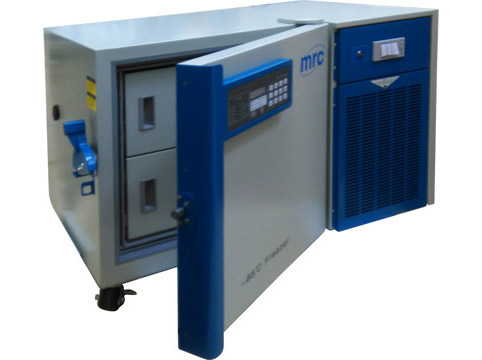Ultra-low laboratory freezers are specialized equipment used in scientific research, medical facilities, and various industrial settings. These freezers are designed to reach and maintain extremely low temperatures, typically ranging from -40°C to as low as -86°C. They serve several critical applications:
Applications
- Storage of Biological Samples: Ultra-low laboratory freezers are commonly used to store biological samples such as DNA, RNA, proteins, cell cultures, tissues, and blood components. These samples are often sensitive to temperature fluctuations, and ultra-low freezers provide a stable environment for long-term preservation.
- Medical Storage: In medical facilities, They are used to store vaccines, pharmaceuticals, and other temperature-sensitive medical supplies. Maintaining the integrity of these products is crucial for ensuring their efficacy and safety.
- Research and Development: Laboratories conducting research in various scientific disciplines, including biology, genetics, microbiology, and pharmaceuticals, rely on ultra-low freezers to store experimental materials and reagents. These freezers help researchers preserve valuable samples for extended periods without compromising their quality.
- Long-Term Storage: They are essential for storing samples and materials for extended periods, ranging from months to years. They provide a reliable solution for laboratories and biobanks to archive specimens for future studies and reference.
- Biobanking: Biobanks store a wide range of biological samples for research, clinical, and diagnostic purposes. Ultra-low freezers are important in biobanking operations by ensuring the long-term preservation of diverse biological specimens, contributing to medical research and personalized medicine initiatives.
- Cryopreservation: Some of them are capable of reaching temperatures as low as -150°C or even lower, enabling the cryopreservation of cells, tissues, and organs for transplantation, regenerative medicine, and other applications.
- Specialized Research: Certain research applications, such as studies on cryobiology, cryoprotectants, and low-temperature chemistry, require ultra-low laboratory freezers to create controlled environments conducive to experimentation and analysis.
